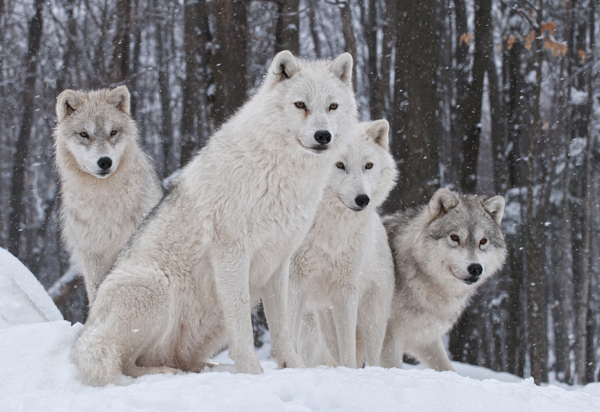Besides being beautiful, animals in the wild are often smarter than we give them credit for. While we have proven more intelligent through thousands of years of evolution and progress, there are actually a number of things that we can learn from our furrier friends. After all, there are some skills animals possess that we don’t.
But in the world of business, how can we learn from creatures that haven’t developed the cognitive reasoning skills that we have? Simply put, we look back on the basics. All of us can stand to become better leaders, and these are just a few things that we can take away from the behavior of pack leaders.
Pack animals trust their instincts. More than likely, you’ve heard the euphemism “animal instincts.” We often use this phrasing in reference to sexual behavior, but it actually refers to any of the natural inclinations that animals have. In fact, their desire to form a pack is an animal instinct itself. Creatures in the wild are not conditioned to behave a certain way by humans; therefore, they have their own patterns and instinctual behavior that tells them how to react to every situation. W
As humans, we have many more factors that go into the things we do. Many of us often have difficulty making decisions, and many of these choices require careful deliberation and research. But when you’re the leader, you have to take control. You may find that your fellow employees are struggling to agree upon something, and that time and money is being wasted. Sometimes we really just need to trust our gut, and be confident in our leadership.
Communication in leadership is very important. For animals, things are usually very black and white. Rules have been previously established, and when the leader gives a command, they obey. Many of this is based on instinct, but they do learn as they grow older by testing boundaries. And when they do something wrong, they are quickly scolded by the pack leader.
You may sometimes find that there is a disconnection between you and your employees; you expect something of them in a specific time period, or for a task to be done a particular way. But if this hasn’t been clearly established, how will they know what it is you want? While you shouldn’t be barking orders at your employees, laying down the rules ahead of time insures that there is less miscommunication. You should also remind them of these regulations when necessary, as they may have forgotten. Keep the lines of communication open, and they will think of you as a great leader.
Don’t get bogged down by the details. Pack leaders live in the here and now – the survival of the pack is what’s most important. There are many less factors in the animal kingdom to worry about, and as a result, they are able to make decisions quickly and decisively, with their main goals of food, shelter, and safety in mind.
Our lives are a bit more complicated than that. There are so many factors that go into every decision that we make that it can be hard to figure out how to do what’s best for your business. When you’re stressed or frustrated with something that’s not going the way you’d like, remember the big picture. Learn to step back and work on one thing at time, and don’t let the negatives of the past or the worries of the future get to you.
If you can work on remembering these leadership tactics from our wild animal friends, you may be able to avoid some big mistakes at your job, and you’ll be able to grow as a leader within your company.
Monica Gomez is a professional writer specializing in business and healthcare topics. She has worked with many business teams to identify examples of successful and failing behavior in organizations.






